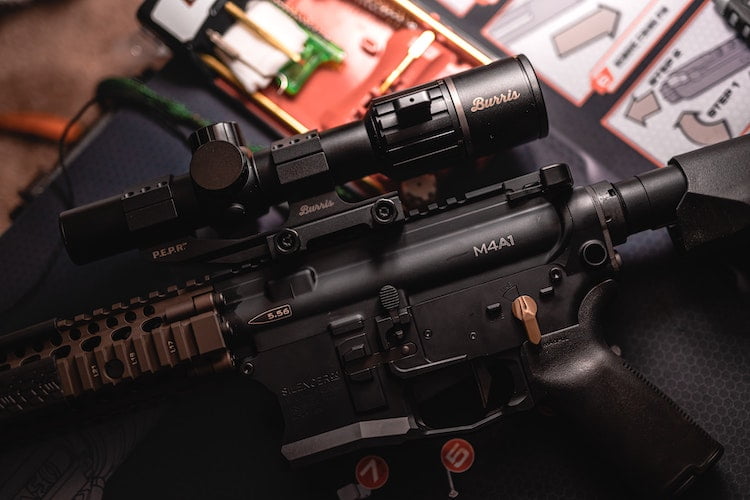DALLAS GUN CRIME LAWYER
FACING VIOLENT CRIME OR Gun Crime CHARGES IN DALLAS, TEXAS?
Crimes involving violence and/or guns are serious offenses that pose a high risk of resulting in serious penalties in Texas. The majority of these crimes are often elevated to aggravated offenses, raising crimes from a misdemeanor to felony charges. The punishment for felony charges can result in years behind bars and thousands in fines.
Contact Gallian Firm at (214) 432-8860 today if you are facing charges for a violent or gun crime in the Dallas area. Your career, family, and freedom are at risk. The gun defense attorneys at Gallian Firm understand the stress and emotional turmoil that these accusations can cause and will work hard to clear your name.
Reach out today for a free consultation and free case review to allow Gallian Firm to begin building your case.
WHAT ARE VIOLENT CRIMES AND/OR Gun Crimes?
Violent crimes are allegations that an individual used intimidation, threats, to attempt to or cause physical harm to another individual.
EXAMPLES OF VIOLENT CRIMES INCLUDE:
- Murder
- Capital Murder
- Manslaughter
- Child Abuse
- Kidnapping
- Aggravated Assault
- Aggravated Sexual Assault
- Family/Domestic Violence
- Arson (see below)
- Robbery
- Burglary of Habitation
- Unlawful Carrying Weapon
- Unlawful Possession of Firearm
Any crime that involves a weapon, including a gun, is also considered a violent crime. Weapons are not limited to firearms. These charges could include any item that has the potential to cause serious injuries, debilitating harm, or death.
It is important to understand the differences in these charges to prepare yourself for potential outcomes in your case.
WHAT ARE THE Penalties for Violence Crimes?
The prosecution will push for a conviction and the harshest penalties for any violent crime. Oftentimes, clients face several charges in these cases, increasing the potential for harsh penalties.
PENALTIES MAY INCLUDE:
- Years in Prison
- Thousands in Fines
- Restitution
- Loss of Child Custody
- Protective Orders
In addition, the majority of violent crimes are felony charges. Individuals face loss of employment, housing, and educational opportunities if convicted of a felony.

WHAT WEAPONS ARE ILLEGAL IN TEXAS?

Texas law defines crimes that involve weapons as offenses against public health and safety. A weapon is an instrument that is specifically designed to inflict serious bodily harm. There are several weapons that are illegal for anyone to possess. Examples of Illegal Weapons Include:
- Homemade Guns
- Explosives
- Brass Knuckles
- Rifle with Barrels Modified to Less Than 16 Inches
- Shotguns Modified to Less Than 26 Inches
- Silencers
- Armor Piercing Ammunition
Possession of these weapons is a class C misdemeanor charge. When charged alone, this results in a $500 fine.
WHAT IS CONSIDERED UNLAWFUL CARRYING OF A WEAPON?
This is the allegation that an individual was carrying a weapon that they are not permitted to possess, in an illegal location, and/or during criminal circumstances.
Unlawful Carrying of a Weapon Pertains If:
- The individual is in possession of a firearm and under the age of 21.
- The individual has previous felony convictions.
- The individual displays the firearm in plain view in public (without a holster).
- The individual carries while intoxicated.
Lawful carrying of a weapon is a Class A misdemeanor that, if convicted, can result in up to 1 year in jail and $4000 in fines.
There are locations that firearms are prohibited even by those who are legally permitted to carry them.
PROHIBITED LOCATIONS INCLUDE:
- Schools
- Courthouses
- Judicial Buildings
- Racetracks
- Airports
- Places of Execution
- Polling Stations
- Correctional Facilities
- Hospitals
- Amusement Parks
This charge can be raised to a 3rd-degree felony depending on the location that the unlawful possession occurs. This could result in up to 10 years in prison and a fine of up to $10,000.
WHAT IS CONSIDERED Unlawful Discharge of a Weapon?
According to Texas law, it is illegal for an individual to discharge a weapon within city limits if the population is greater than 100,000 people. The court has interpreted this law to describe any individual who discharges a weapon in a highly-populated area, causing unnecessary panic amongst the public. This does not apply to cases where a weapon is accidentally discharged. To unlawfully discharge a weapon, an individual must intentionally shoot a weapon during unsafe and reckless circumstances.
WHAT ARE CRIMES AGAINST PROPERTY?
Crimes against property involve damage against a building, habitation, vehicle, or other property.
PROPERTY IS DEFINED AS:
- Real Property, Tangible or Intangible
- Personal Property Severed from Land
- Documents, Including Money
Any reckless or intentional destruction of another person’s property is a crime against property. These charges include arson and burglary of a habitation.
WHAT IS ARSON?
Arson is the allegation that an individual intentionally starts a fire, or explosion, with the intention to damage property. It is irrelevant whether the fire continues to burn after it is ignited. There are several circumstances that can lead to charges of arson.

START A FIRE FOR INSURANCE
Starting a fire to a property that the defendant know is insured is a crime under all circumstances.
STARTING A FIRE ON OPEN LAND
Starting a fire even on open land, including vegetation, within city limits constitutes arson. There are open land exceptions for controlled fires outside of town limits.
FIRE AND MANUFACTURING ILLICIT DRUGS
Individuals who unintentionally start a fire while committing the crime of manufacturing illegal drugs can also face arson charges.
STARTING A FIRE DUE TO RECKLESSNESS
A person can face arson charges for starting any fire that puts nearby buildings, property, or people at risk of harm.
Texas considers arson a serious crime with most convictions resulting in 2nd-degree felony charges. This can result in 2 to 20 years behind bars and $10,00.
Arson charges may be raised to a 1st-degree felony if another person is harmed or killed as a result of the fire and/or explosion. If convicted of a 1st-degree felony the defendant could face 5 to 99 years in prison
WHAT IS THE DIFFERENCE BETWEEN ROBBERY AND BURGLARY OF A HABITATION?
Robbery and burglary are similar crimes that can take place simultaneously. Robbery is a crime that takes place during a burglary. Robbery involves using fear, force, or intimidation to commit theft.
Burglary is simply entering a building or habitation with the intent to commit a crime. Read more about what constitutes burglary of habitation here.
HOW IS DEADLY CONDUCT DEFINED?
Deadly conduct is the allegation that an individual’s reckless behavior puts another person in imminent danger of serious bodily harm.
An individual faces charges of deadly conduct when a weapon is discharged recklessly, potentially harming others.
THIS MAY INCLUDE DISCHARGING A FIREMAN AT:
- An Individual(s)
- A Building
- A Habitation
- A Vehicle
Charges may also be faced if an individual points a weapon at another person, whether or not they believe the gun to be loaded.
LENGTH OF Prison Terms for Gun Crimes and Violent Crimes

A conviction for a violent crime and/or gun crime has devasting consequences on both your professional and personal life. The penalties for these convictions range from misdemeanor offenses, resulting in a year behind bars and 10,000 in fines, to harsh felony offenses.
Felony charges can result in anywhere from 2 years to 99 years in prison and $10,000 in fines. Once an individual is charged as a felon, they also suffer personal and financial consequences. Many employers will not hire a convicted felon. This results in career limitations and financial struggles.
“
A conviction for a violent crime and/or gun crime has devasting consequences on both your professional and personal life. The penalties for these convictions range from misdemeanor offenses, resulting in a year behind bars and 10,000 in fines, to harsh felony offenses. Felony charges can result in anywhere from 2 years to 99 years in prison and $10,000 in fines. Once an individual is charged as a felon, they also suffer personal and financial consequences. Many employers will not hire a convicted felon. This results in career limitations and financial struggles.
WHAT DEFENSE STRATEGIES CAN A LAWYER UTILIZE AGAINST A VIOLENT CRIME?
Which defense strategy will be most effective for proving your innocence, or at minimum, lessening charges will depend on your unique case. There are several methods that a criminal defense lawyer can use in court to help clients avoid serious charges
DENIAL OF CRIME
The most standard defense for any crime is the denial that the crime was committed by the defendant. The prosecution requires evidence that proves without any reasonable doubt that the defendant did commit the crime. There is no case and the jury will not convict an individual of murder if there is no irrefutable evidence.
INSANITY
An individual who is not mentally competent cannot be charged with knowingly and intentionally committing a crime. The insanity plea is not easy to execute and generally not the best line of defense. First, it would need to be determined that the defendant is not competent to stand trial.
Next, a mental health professional would be required to evaluate the defendant to determine the exact reason for this incompetency. If the mental health professional determines that the defendant is not competent to stand trial, the prosecution will have the option to agree with or to challenge the expert’s findings. A competency trial will take place if the prosecution disagrees.
At a minimum, the defendant will be sent to a mental health facility if they are deemed incompetent. At which point they will be treated to restore competency or deemed unrestorable.
It is difficult to successfully execute an insanity defense because a lawyer would need to prove that the defendant did not know that the illegal activity was wrong at the time the crime was committed.
LACK OF INTENT
With the exception of manslaughter and recklessness, the majority of crimes require the defendant to commit them knowingly and intentionally to be convicted.
To be convicted of murder, the prosecution must prove that the defendant intentionally and deliberately killed an individual. The crime is not murder if the actions that led to the death were accidental or reckless. Lack of intent to kill is a plausible defense that can potentially lessen charges.
SELF-DEFENSE
Self-defense is a potential defense that can be used for the complete justification of several types of violent crimes. Although effective, self-defense can be difficult to prove, requiring several elements to be present.
SELF-DEFENSE REQUIRES:
- The Victim was Unprovoked
- Minimum Force Used
- No Crime was Occurring
- Necessary for Own Safety
However, Texas is a stand your ground state. This means that self-defense murders are generally justifiable when an individual invades the defendant’s home or vehicle.
Self-defense is commonly used in murder, assault, manslaughter, and domestic violence cases effectively.
Self-defense can also be a permissible defense if the defendant is protecting another individual from serious harm, including kidnapping, murder, robbery, or sexual assault.
WHAT IF THE POLICE ARE QUESTIONING MY FAMILY?
Do not discuss any details of the case with anyone, including friends, family, and/or law enforcement. These are serious allegations. Utilizing your right to remain silent is crucial to the success of your case and your freedom.
Law enforcement will use any information, including attempts to defend yourself, against you in court. Friends and family will also be questioned by law enforcement. Protect them by not sharing any information about your case.
Let your lawyer know immediately if you have unintentionally spoken with anyone about your case.
DO I NEED TO HIRE A Defense Lawyer for a Violent Crime or Gun Crime?
Hiring a reputable and experienced criminal defense lawyer is the key to lessening charges and avoiding the harshest penalties. The lawyers at Gallian Firm are former federal and state prosecuting attorneys, meaning that they understand Texas law from both of sides of the matter, and know the best way to proceed in your case.
Gallian Firm defense attorneys will review the circumstances of your case, including the testimonies and evidence against you, and use this information to build a solid defense.
Seek legal representation as soon as possible to allow Gallian Firm to begin building your case. At your free consultation, Gallian defense lawyers will provide honest answers regarding the expectations in your case.
WHY IS GALLIAN FIRM THE BEST CHOICE FOR CRIMINAL DEFENSE?
The defense lawyers at Gallian Firm have extensive knowledge and experience. They know what is required to generate the best legal defense in your case. Gallian Firm has helped hundreds of clients in the Dallas area avoid prison time and move forward with their lives.
It is never too late to contact Gallian Firm for a free case review, even if you have already hired a less competent attorney. You deserve the best legal defense and have a responsibility to yourself, your family, and your future to choose an experienced lawyer for representation in the courtroom.
Seek legal representation as soon as possible to allow Gallian Firm to begin building your case. At your free consultation, Gallian will provide honest answers regarding the expectations in your case. They will bring the experience, skill, and resources to bear in defending you to the maximum extent of the law.
HOW DO I SCHEDULE A CONSULTATION?
Gallian Firm has a track record of success. They are fearless and fight for their clients in the courtroom like no other defense attorneys. Put the toughest criminal defense lawyer in your corner. Contact Gallian Firm today for a case review and evaluation. You can reach the firm at 214-432-8860, 24/7.
Frequently Asked Questions About Defense for Gun Charges in Dallas
Yes, our attorneys have defended gun cases with very successful results for years. We encourage you to call and ask any questions, including about our experience at (214) 432-8860. We are ready to help defend clients against gun charges.
Common charges include unlawful possession of a firearm, carrying a concealed weapon without a permit, and unlawful discharge of a firearm. Often, gun charges are combined with other charges to “aggravate” a charge, with more severe penalties if
convicted.
Gun charges in Dallas can have severe consequences, including hefty fines, potential imprisonment, and a permanent criminal record. It’s crucial to seek experienced defense for gun charges to protect your rights and future.
It primarily depends on the specifics of your case. If you have any prior convictions or legal restrictions, you can lose your right to gun ownership. Consult with our lawyers for a free consultation.
If you’ve been arrested for gun charges in Dallas, we would suggest two steps. The first step is to remain calm. The second is to exercise your right to remain silent. The sooner you contact a defense lawyer for gun charges, the better.
Upon learning the details of your case, our experienced attorneys will build a strong defense strategy, negotiate with prosecutors on your behalf, and represent you in court to achieve the best possible outcome for you. We will aggressively fight for you at every stage of your defense.
Some strategies to defend a client may include showing the gun possession was lawful, challenging the validity of the search and seizure, claiming self-defense, or showing a lack of intent or knowledge.
Depending on your case details and any prior criminal history, you could face gun-related jail time. But with a strong defense lawyer like the attorneys at Gallian Firm fighting for you, we will fight for the best possible outcome.
In some cases, an expunction is possible. Expunctions can happen if your case is dismissed or if you were found not guilty at trial. Consulting with an experienced lawyer related to the specific circumstances of your case is a wise choice.
Gun cases can be impacted by the strength of the evidence, prior criminal history, the effectiveness of the defense strategy, and the judge’s discretion. You need a great lawyer working with you. The strongest defense possible is critical against these gun charges.
The duration of gun charge cases in Dallas will vary. The backlog of cases, the complexity of a case, and efforts to negotiate will all impact the amount of time the process takes. We can give you an estimate about what can be expected in terms of the time the process may take when we meet with you.
If you plead guilty to gun charges in Dallas, you may suffer severe penalties, including fines, probation, loss of firearm rights, and incarceration. It’s crucial to consult with our defense lawyers before making any decisions regarding your case. There are strategies for different situations that can benefit you which you should discuss with an experienced defense attorney like the attorneys at Gallian Firm.
If you are required to share your criminal history, yes. But our defense lawyers can provide insight into your rights when seeking employment.
The cost of hiring our firm to defend you depends upon factors such as the complexity of the case, attorney experience, and anticipated legal fees. All of your pricing is transparent, simply call for a free consultation and we can discuss any aspect of our rates in the context of your case evaluation.
GET YOUR free CONSULTATION
Send a message to Gallian Firm and we will contact you as soon as possible.



